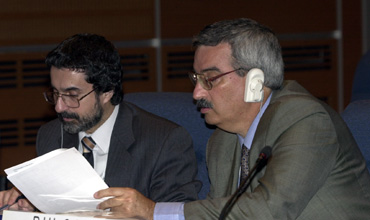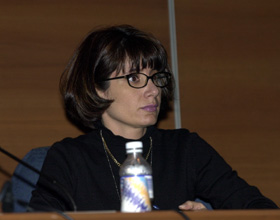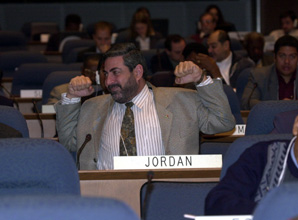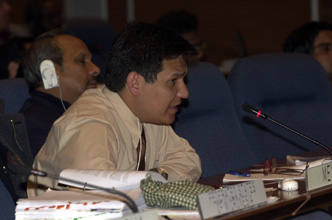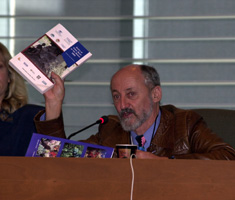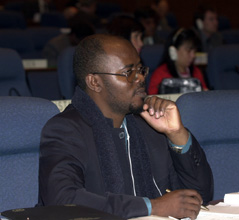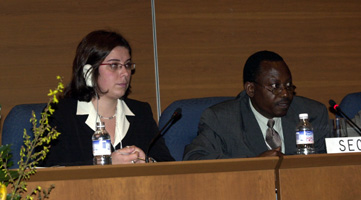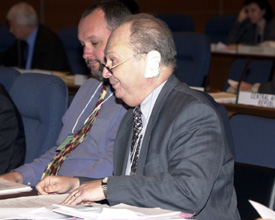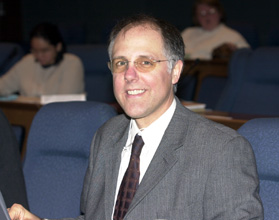|
|
|
Highlights for Wednesday, 12 March 2003
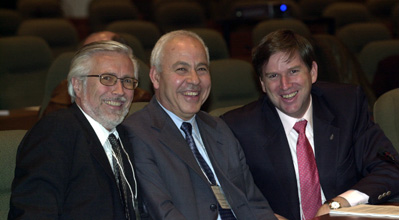 Delegates
met throughout the day in two Working Groups. Working Group I (WG-I)
considered SBSTTA operations, and biological diversity and tourism.
Working Group II (WG-II) continued discussions on marine and coastal
biodiversity, and started considering dry and sub-humid lands
biodiversity. The contact group on the programme of work for mountain
biodiversity and a contact group on deep seabed genetic resources met in
the evening. Above photo: CBD Executive Secretary Hamdallah Zedan, with
former SBSTTA Chairs Peter Schei (Norway) (left) and Cristian Samper (Colombia)(right).
Delegates
met throughout the day in two Working Groups. Working Group I (WG-I)
considered SBSTTA operations, and biological diversity and tourism.
Working Group II (WG-II) continued discussions on marine and coastal
biodiversity, and started considering dry and sub-humid lands
biodiversity. The contact group on the programme of work for mountain
biodiversity and a contact group on deep seabed genetic resources met in
the evening. Above photo: CBD Executive Secretary Hamdallah Zedan, with
former SBSTTA Chairs Peter Schei (Norway) (left) and Cristian Samper (Colombia)(right).
| Working Group I: |
SBSTTA
OPERATIONS:
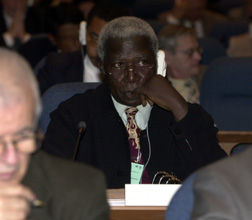 Alfred Oteng-Yeboah (Ghana) presented the strategic plan of SBSTTA (UNEP/CBD/SBSTTA/8/12), and the Secretariat introduced the review of SBSTTA recommendations (UNEP/CBD/SBSTTA/8/13). |
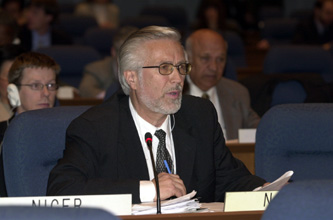 NORWAY, supported by UGANDA, stressed that SBSTTA should focus on technical and scientific issues, and avoid political debates. |
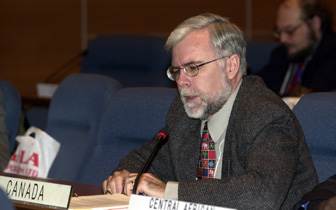 CANADA, questioned the need for an additional plan, noting that the Convention's Strategic Plan provides overall guidance for SBSTTA. |
MOUNTAIN
BIODIVERSITY: 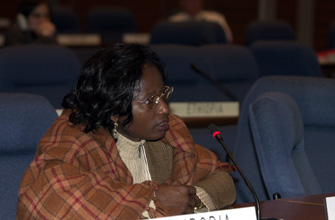 Cameroon, on behalf of the AFRICAN GROUP, reiterated the importance of women's empowerment, CHM, and a broader definition of mountain. She also proposed incentives for conservation for indigenous and local communities, rather than capacity building for benefit-sharing arrangements. |
|
|
BIODIVERSITY
AND TOURISM: 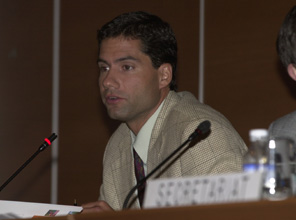 Scott Muller, Project for the Study and Management of Wilderness Areas of Kuna Yala, presented a case study on the implementation of CBD draft guidelines on sustainable tourism. |
|
|
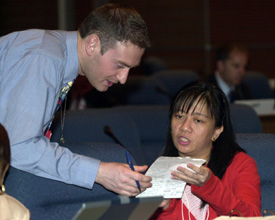 The PHILIPPINES underscored the need for capacities and technologies to promote sustainable tourism, and proposed amendments relating to marketing sustainable tourism. |
|
|
|
|
| Working Group II: |
|
MARINE
AND COASTAL BIODIVERSITY: |
|
|
|
|
|
|
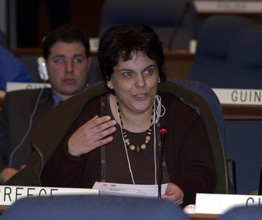 GREECE recalled that the issue fell within the CBD's mandate according to CBD Articles 3 (Principle) and 4 (Jurisdictional scope), and that SBSTTA was competent to deal with its scientific aspects under Decision II/10 on marine and coastal biodiversity. |
DRY
AND SUB-HUMID LANDS: 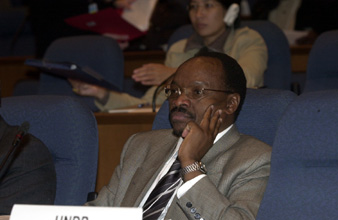 Ndegwa Ndiang'ui, UN Convention to Combat Desertification (UNCCD), outlined progress on the UNCCD-CBD joint work programme. |
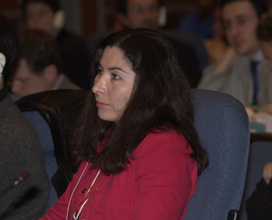 COLOMBIA highlighted the need for resources and appropriate mechanisms for periodic assessment of status and trends, and development of progress indicators. |
|
|
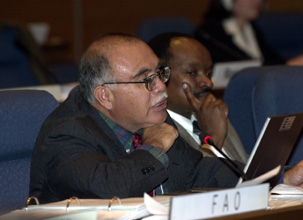 Delegates considered UNEP/CBD/SBSTTA/8/WG.II/CRP.1 on the work programme on inland water ecosystems, prepared by the Friends of the Chair group. On assessment of status and trends, and rapid assessment, the GEF (left) suggested including causes of threats to inland waters and COLOMBIA noted the need to define the resources to carry out the work mentioned. |
| SBSTTA-8 SNAPSHOT: |
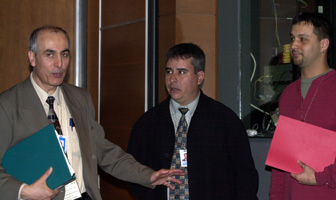 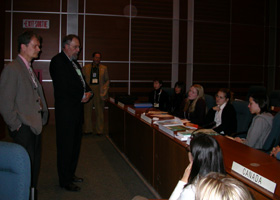 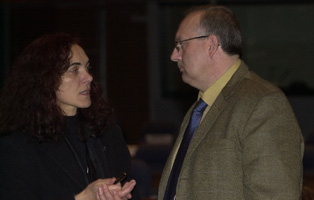 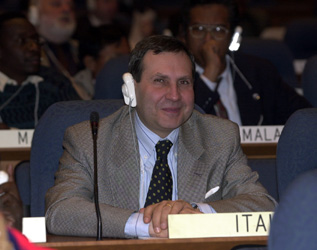  |
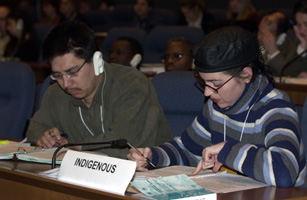 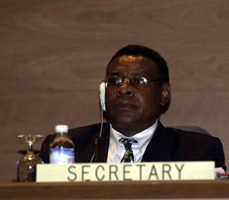  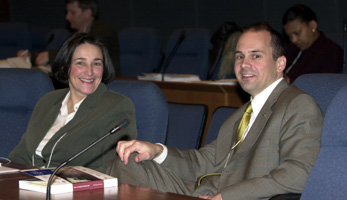 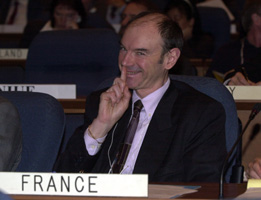 |
  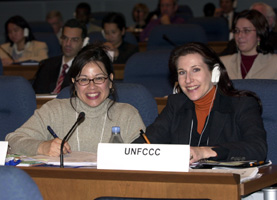 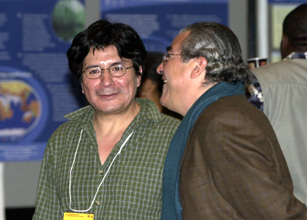 |
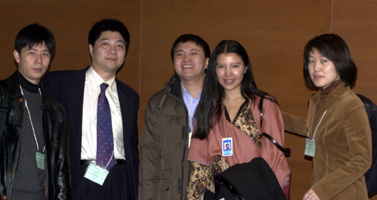   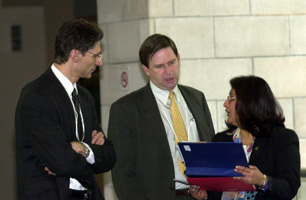 |
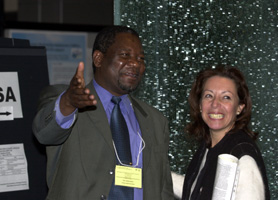  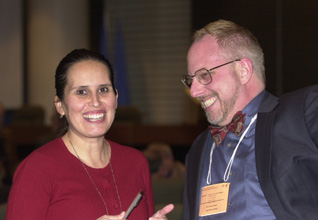 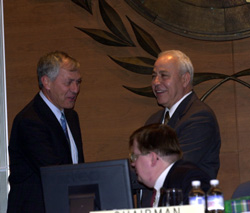 |
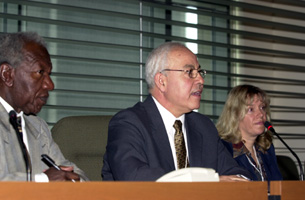 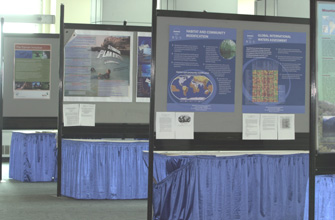 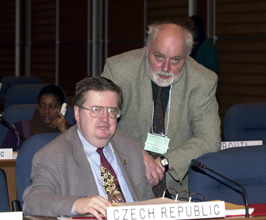 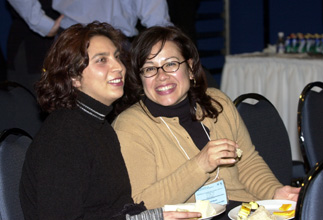 |
|
Links
|
|
Back to Linkages home - Visit IISDnet
- Send e-mail to ENB |

